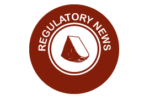The FDA has created a Windows application meant to run on a PC or laptop that will guide you step-by-step through the process of creating a safety plan for your food business, and they’ve now just released it for download. According to the website:
The U.S. Food and Drug Administration’s (FDA) Food Safety Plan Builder (FSPB) is a tool designed to assist owners/operators of food facilities with the development of food safety plans that are specific to their facilities and meet the requirements of the Current Good Manufacturing Practice, Hazard Analysis, and Risk-Based Preventive Controls for Human Food regulation (21 CFR Part 117).
Use of this tool is strictly optional on the part of the user. FDA is not requiring use of this tool to develop a facility’s food safety plan. Although the content of the Food Safety Plan Builder v. 1.0 is consistent with the FDA’s existing guidance and regulations, use of the Food Safety Plan Builder by owners and operators of food facilities does not mean that their food safety plan, preventive controls, good manufacturing practices and other food safety procedures are approved by FDA or comply with FDA requirements.
The Food Safety Plan Builder guides the user through the following sections:
- Facility Information
- Preliminary Steps
- Good Manufacturing Practices (GMP) & Prerequisite Programs
- Hazard Analysis & Preventive Controls Determination
- Process Preventive Controls
- Food Allergen Preventive Controls
- Sanitation Preventive Controls
- Supply-Chain Preventive Controls
- Recall Plan
- Reanalysis of Food Safety Plan
- Food Safety Plan Report
- Signature
- Recordkeeping Procedures
- Important Contacts
- Supporting Documents
If you have additional questions or need more information, please email FoodSafetyPlanBuilder@fda.hhs.gov

 During a salmonella outbreak of 2008 and 2009 nine people died, 166 were hospitalized and more than 700 fell ill. Authorities ultimately traced the contamination of
During a salmonella outbreak of 2008 and 2009 nine people died, 166 were hospitalized and more than 700 fell ill. Authorities ultimately traced the contamination of